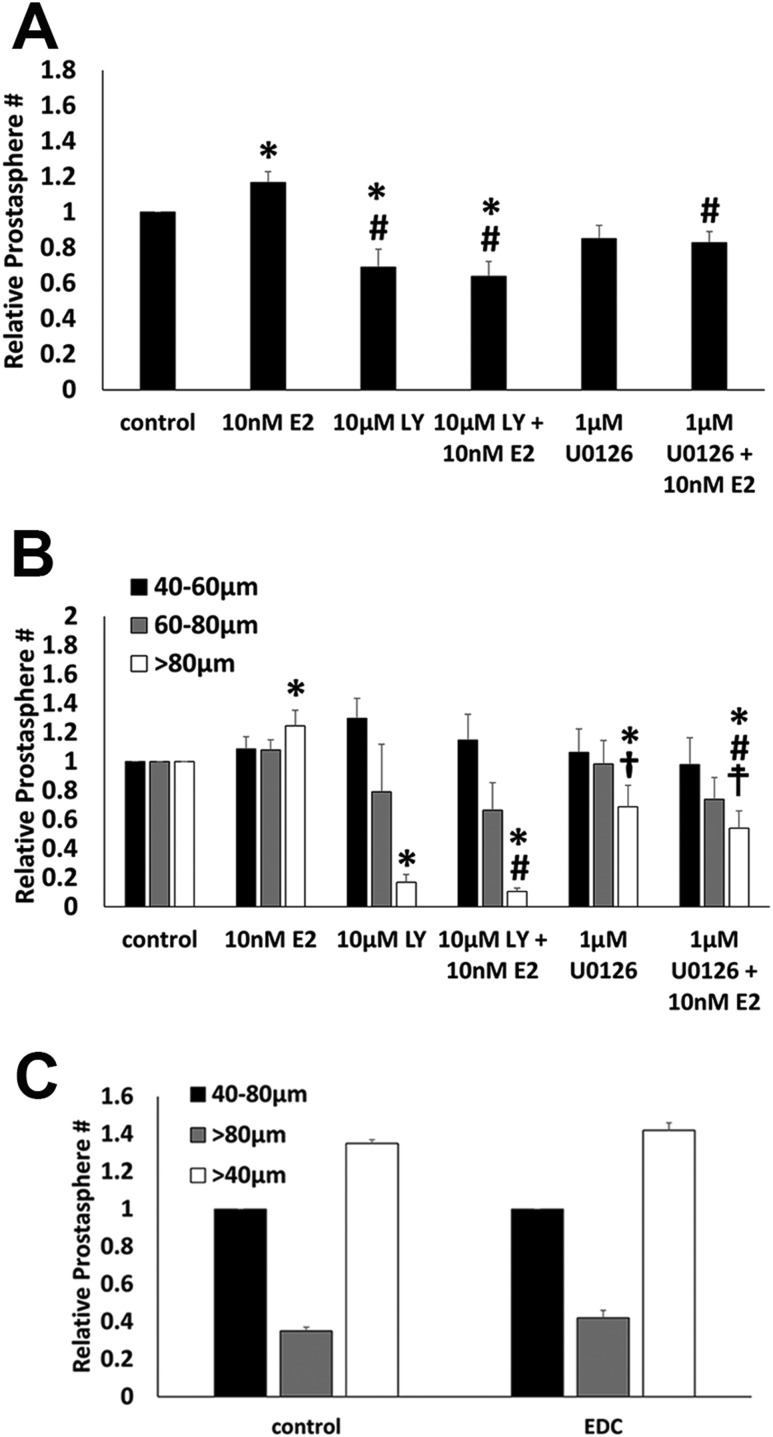Figure 3.
AKT and MAPK signaling pathways are critical for prostate stem cell self-renewal and progenitor cell proliferation. (A and B) Prostaspheres (PSs) were cultured for 7 d in the absence or presence of PI3K–AKT pathway inhibition [LY294002 (LY)], MAPK (ERK1/2) pathway inhibition [U0126 (UO)], without and with concomitant 10 nM E2 exposure. (A) Exposure to 10 nM E2 increased the total spheroid numbers (relative to vehicle control, set as 1.0), whereas the presence of LY294002 or U0126 decreased the number of spheres as compared with vehicle controls or E2-exposed PSs. The addition of E2 to either the LY294002- or the U0126-exposed cultures was unable to mitigate the loss in spheroid numbers (n = 7). *P < 0.05 vs control; #P < 0.05 vs E2. (B) Spheroid size, measured between 40 and 60 µm, 60 and 80 µm, and >80 µm, was assessed in cultures exposed to LY294002 and U0126 with/without 10 nM E2. Exposure to E2 increased spheroids >80 µm in size, indicating a proliferative effect on daughter progenitor cells. Inhibition of PI3K–AKT or ERK1/2 pathways markedly reduced the numbers of large-sized spheres, indicating their essential role in progenitor cell proliferation. E2 treatment with LY294002 or U0126 could not mitigate this effect, suggesting a requirement of membrane-initiated pathways in E2-induced progenitor cell proliferation. n = 7. *P < 0.05 vs control; #P < 0.05 vs E2; †P < 0.05 vs LY294002; ‡P < 0.05 vs LY294002 plus E2. (C) Shown are total sphere numbers (open bar) and sphere numbers between 40 and 80 µm and >80 µm in PSs grown in the absence or presence of E2-dendrimer compound (EDC) for 7 d.

